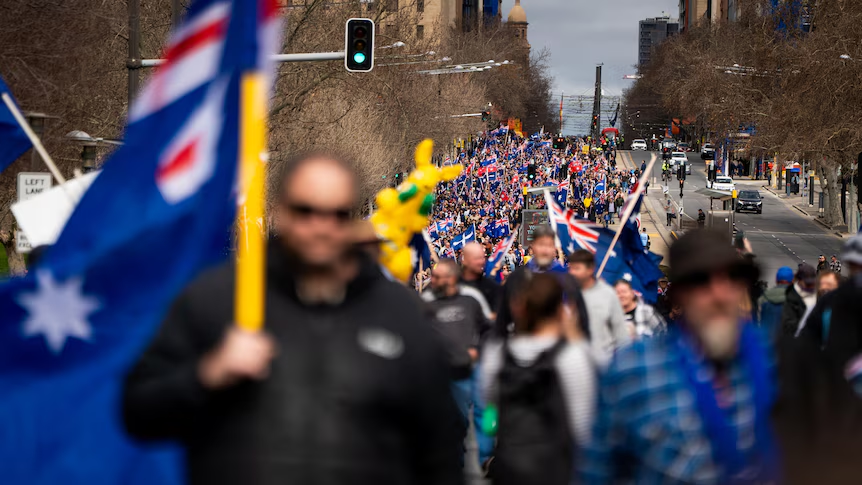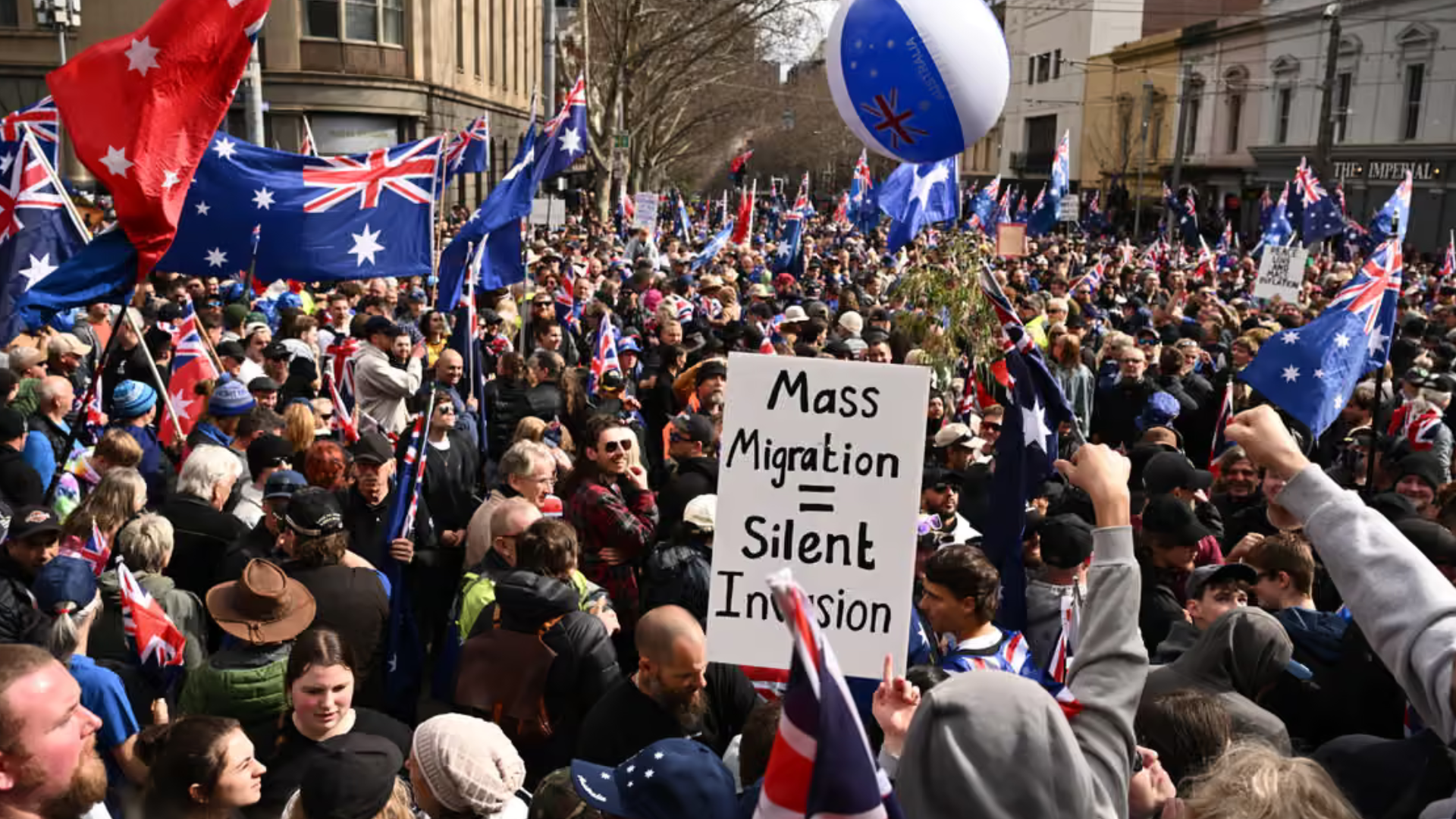Thousands of demonstrators joined March for Australia rallies in capital cities and regional centres on Sunday, August 31, calling for an end to mass migration.
The events, held in Sydney, Melbourne, Brisbane, Adelaide, Perth, Hobart and elsewhere, drew heavy police presence amid fears of violence and counter-protests.
While some attendees described the rallies as a stand for “Aussie culture,” others chanted offensive slogans such as “send them back” and “stop the invasion.”
Members of the neo-Nazi group National Socialist Network also addressed crowds, using slogans such as “hail White Australia.”
The rallies prompted widespread condemnation. The federal government said the events “seek to divide and undermine” social cohesion, while opposition figures warned that violent behaviour would not be tolerated.
Prominent politicians including One Nation leader Pauline Hanson, who said she was “so proud” to attend the Canberra rally, and Queensland MP Bob Katter, who joined demonstrators in Townsville, were among those present.
Police reported arrests in several cities, with Melbourne seeing the most serious clashes as officers used OC spray and public order munitions to separate rival groups.

For many multicultural Australians, the rallies were a confronting experience. Peter Doukas, head of the Federation for Ethnic Communities Councils of Australia (FECCA), said the demonstrations evoked memories of the White Australia policy.
“It brought together the experiences of the newly arrived migrants, to the very early migrants, those that arrived during the White Australia policy,” he said.
“It reinforces the need for constant advocacy for multicultural Australia and the strength that the broader multicultural communities give this country.”
Experts warned the rallies reflected broader far-right mobilisation. “Far-right groups that are explicitly anti-government and neo-Nazi are using public concerns around issues like cost of living, immigration… to mobilise the public to something that is closer to their cause,” said Macquarie University professor Julian Droogan.
Despite the rallies, Doukas emphasised that: “I think ordinary Australians that didn’t necessarily participate in these rallies proved that these are fringe movements.”
“Ordinary Australians have embraced pluralism and multiculturalism within a framework of wider respect and I think that’s what we take out of this,” he added.
Source: ABC News
